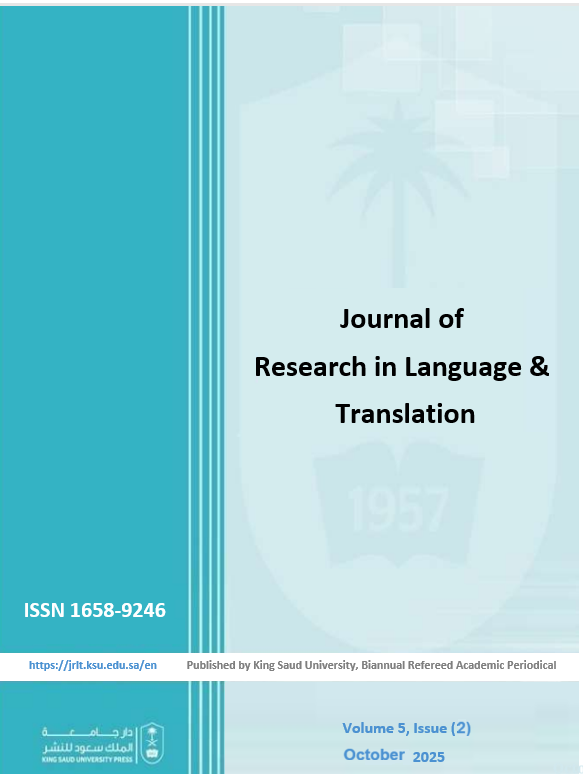Serial Verb Constructions in Hijazi Arabic: A Lexical-Functional Grammar Approach
DOI:
https://doi.org/10.33948/JRLT-KSU-5-2-5Keywords:
argument sharing , Lexical-Functional Grammar (LFG), Hijazi Arabic, Serial Verb Constructions (SVCs)Abstract
This study investigates Serial Verb Constructions (SVCs) in Hijazi Arabic within the framework of Lexical-Functional Grammar (LFG). While SVCs are extensively documented in typologically diverse languages such as Yoruba, Thai, and Mandarin, their presence in Arabic dialects remains underexplored. This study examines the morphosyntactic structure, argument-sharing mechanisms, and functional dependencies of Hijazi Arabic SVCs. The analysis reveals that Hijazi Arabic exhibits core SVC properties, including monoclausality, the absence of overt coordinators and complementizers, and robust patterns of subject and object sharing. By leveraging LFG’s parallel architecture, the study demonstrates how functional control, predicate composition, and argument structure mapping effectively capture the syntactic and semantic integration of SVCs in Hijazi Arabic. The findings contribute to both the typology of SVCs and the theoretical development of LFG, offering insights into how the framework can be extended to accommodate the complexities of multi-verb constructions in Arabic dialects.

